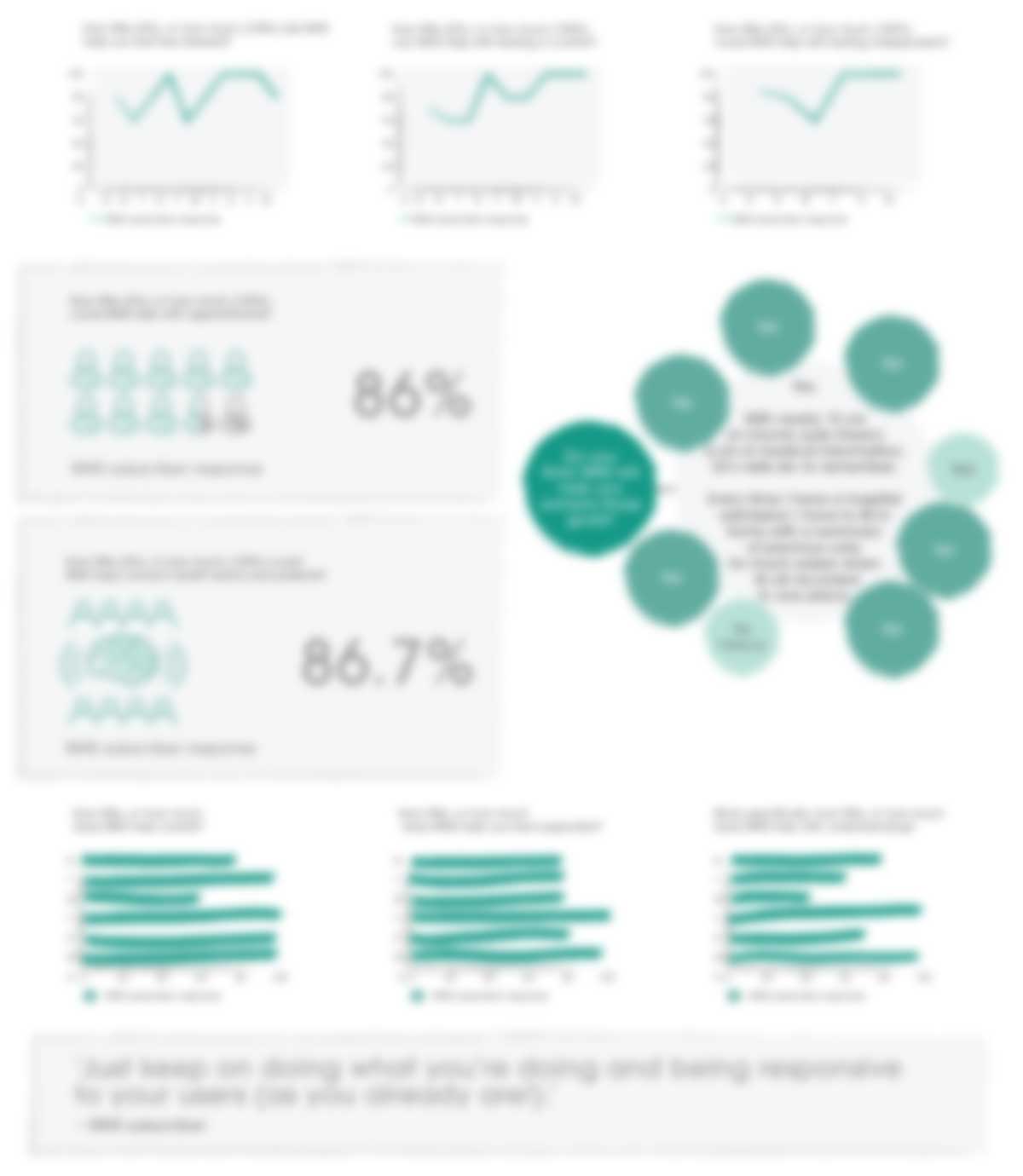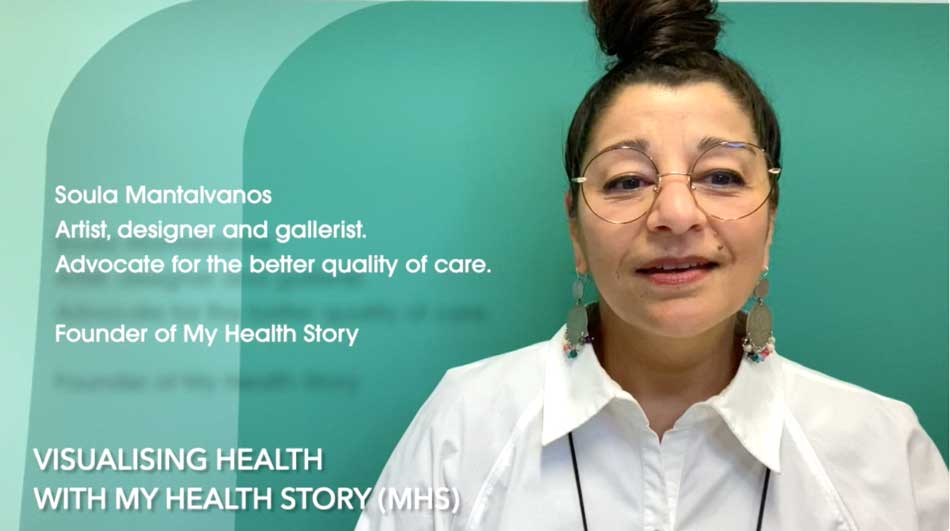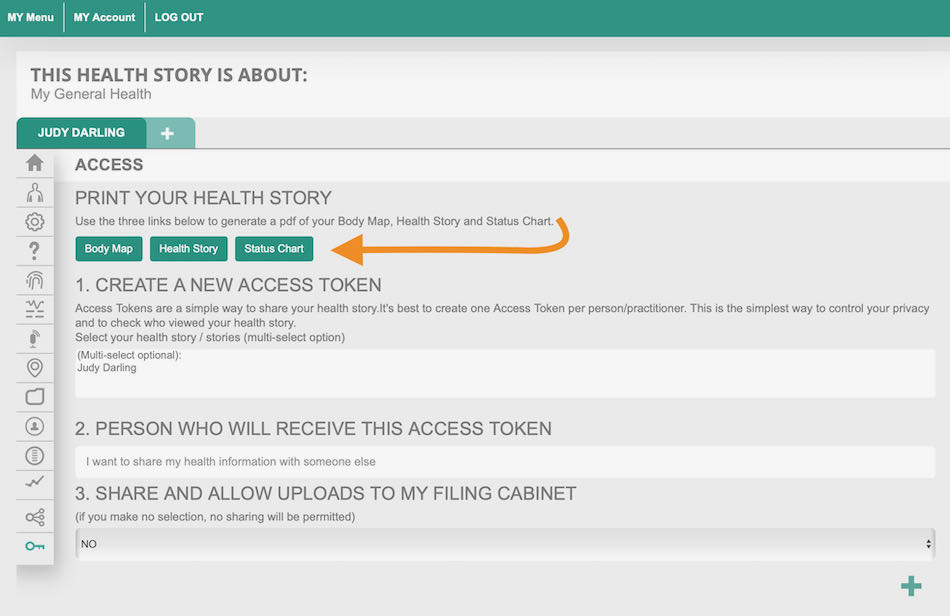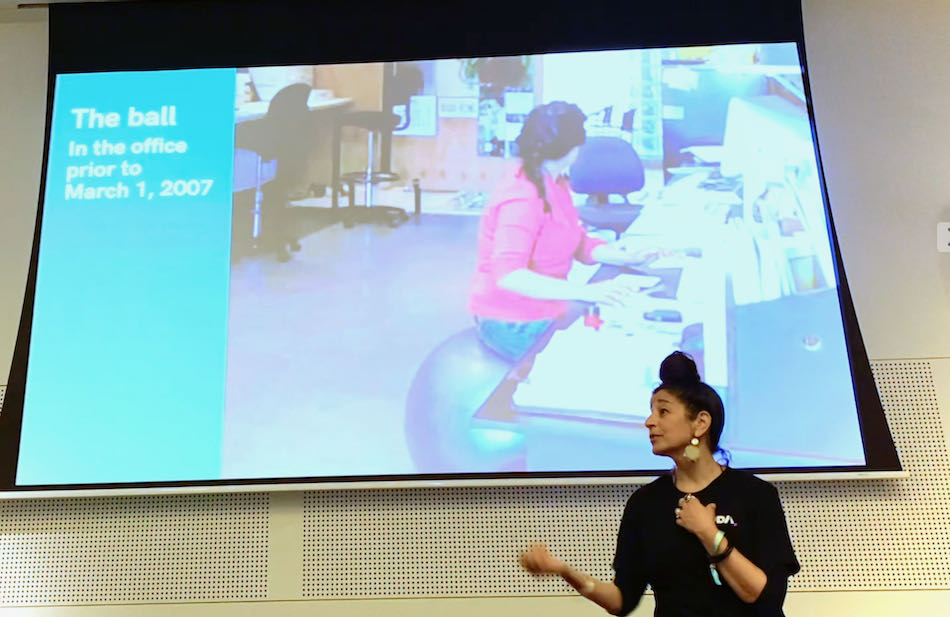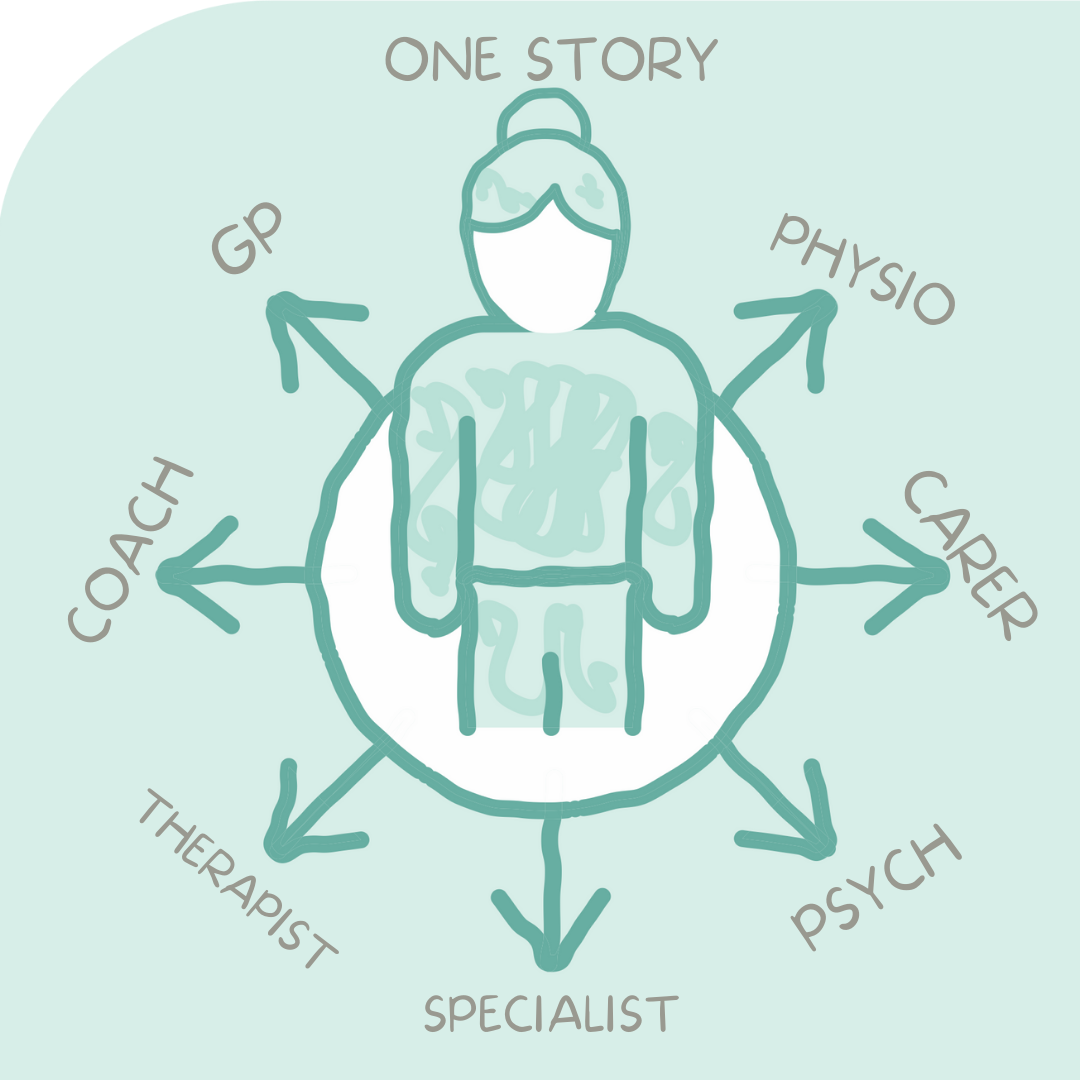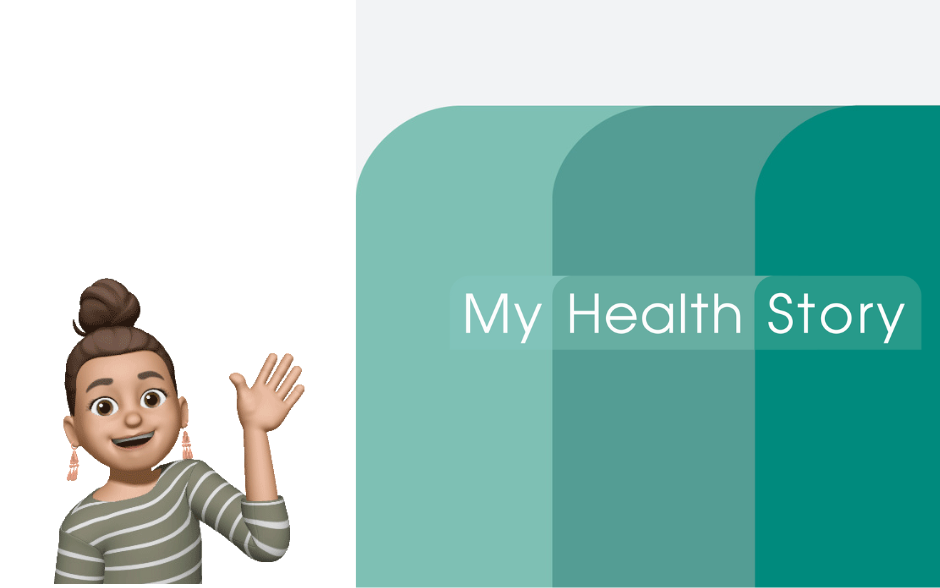The My Health Story 2022 Survey Outcome Report
The My Health Story (MHS) 2022 Survey Outcome Report was conducted through 2022. The user feedback information was collected from MHS current subscribers, viewers of patient health stories (carers, practitioners, clinicians, etc) and website visitors such as healthcare professionals who have a strong interest in patient empowerment, enhancing care for people living with chronic illness as well as new technologies relating to chronic health. User feedback data was collected from responses to this MHS survey. The MHS 2022 Survey Outcome Report includes three pages: people using MHS to manage their health stories practitioners/clinicians/carers who were invited to view health stories, and additional related user feedback data [...]
Visualising Health with My Health Story Founder, Soula Mantalvanos
In this 15-minute Vimeo, founder of My Health Story, Soula Mantalvanos, discusses how she believes visualising the personal health experience can lead to better care and understanding. Soula combines her years of living with chronic pain and her professional creative communication experience to advocate for a better quality of care. […]
MHS New Feature: Print My Health Story
(IMAGE: Judy Darling prints her health story via the website) An exciting new feature is helping MHS users communicate their unique health situations more easily during appointments. My Health Story (MHS) has always prioritised the safe sharing of user health stories. The current MHS Access Link function effectively tracks information for users who like to monitor whose checking in to their health story/stories, and when and how often. Over the past few months, some user feedback sent to the MHS team suggested that a 'print my health story' function could be more straightforward and effective – especially for healthcare professionals and clinicians who were reluctant [...]
Soula Presents her Lived Experience at the CODA Conference 2022
(Vimeo: Soula's lived experience forms part of Dr Paul Grinzi's Management of Persistent Pain in Primary Care workshop at the Australian CODA Conference 2022). My Health Story (MHS) founder Soula Mantalvanos was invited to contribute her lived experience to the Management of Persistent Pain in Primary Care workshop created by General Practitioner & Medical Educator Dr Paul Grinzi. The four-day (IRL) CODA conference was held at the Melbourne Convention Centre, and healthcare practitioners and clinicians working in various health sectors attended from the US, NZ and Australia. Participants worked together as Dr Grinzi presented educational resources such as science-based evidence, videos, and examples to clarify the understanding of chronic pain through the four-hour workshop. Everyone shared their experiences, knowledge and ideas.
My Health Story Helping with Stroke Rehabilitation
My Health Story (MHS) helped 76-year-old Helen Sharam* work with her physiotherapist immediately after an overwhelmed hospital system moved Mrs Sharam from rehabilitation to home too quickly. Thanks to MHS, the physiotherapist knew Mrs Sharam’s medical history before meeting her. Physio CL said: “Having all that information to hand online before I met Mrs Sharam helped me manage the appointment better so I could focus on providing the care. In addition, it helped me to connect more easily with the patient and understand her situation better. So this process also supported me.” […]
My Health Story Now Live in Your App Store
(Story from MHS Founder's blog pudendalnerve.com.au) I'm a proud buttercup. Despite my many ongoing limitations, I feel I've come a long way. And today, I have a huge milestone to celebrate with you. But first, shall I reflect? The earliest evidence of being able to again participate in life was the posting of my first Instagram. It was July 2011, a few months before I began this website. I remember Instagram forming a lifeline to my creativity when my phone and a glass of water were too heavy for me. After Instagram, more abilities began to very slowly unravel. I began to sit a little longer, think broader, and make a little more. I started building ideas a little grander and executing them. Over the past 15 years, I have watched myself rise above the injury that changed my body in 2007. I have made a book and a short documentary, became an advocate, contributed to a medical journal and helped with medical GP training. And now the triumphs...

